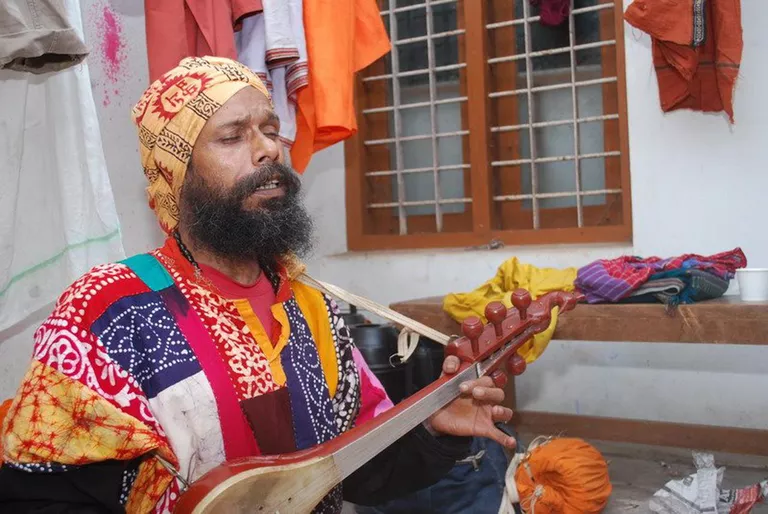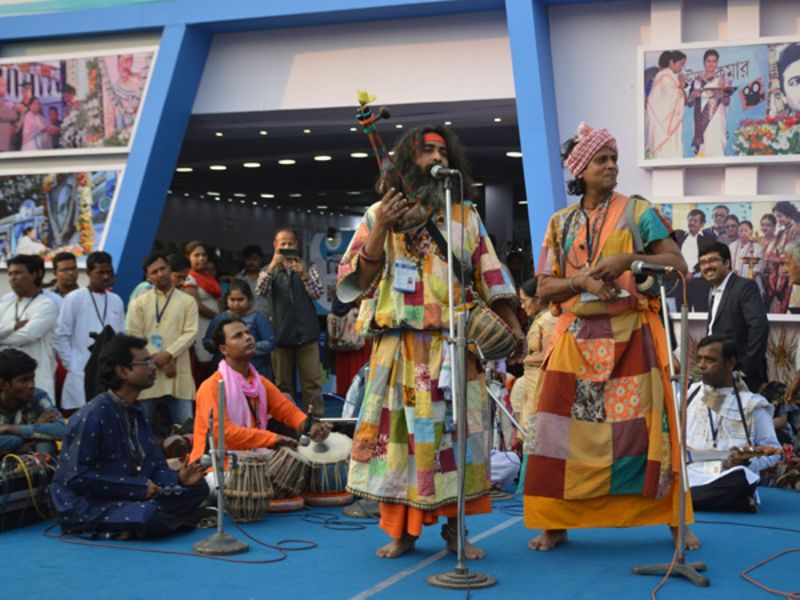Folk Music of India: Baul

The Baul music which is predominantly spread in the Bengali region of India is a form of music that is infused with the elements of Sufism, Vaishnavism, Tantra and Buddhism. The Baul Music has been included in the Masterpieces of the Oral and Intangible Heritage of Humanity by UNESCO in 2005.
There is an inherent contrast in the composition of the Baul music, it describes and celebrates the celestial in a very earthly tone and manner. Due to this very liberal and open-ended interpretation of love, it is within the nature of the Baul music to be devotional in its spirit and soul. The Baul music transcends religion and enshrines the belief of love across the superficiality of religious lines.
The great Bengali poet Rabindranath Tagore had his work heavily influenced by the Baul music which can be evidently seen in his famous Rabindra Sangeet.

The Baul music is representative of the deep belief and preaching of mysticism in Bengali folklore. The lyrics of the Baul Sangeet are a manual of deep mysticism and longing with the mystic and the divine. Metaphysical topics also found their way in the contents of the lyrics. They stress staying unattached and unconsumed by the delights of life even while getting a charge out of them. A significant piece of their way of thinking is “Deha tatta”, an otherworldliness identified with the body rather than the brain. They look for the divine nature in people.
The Baul songs have an inherent inclination in adapting and acclimatizing to the ever-changing times and in incorporating and infusing in them the contemporary economic and societal changes.
The instrument that was most commonly used is Ektara, which is a single-stringed instrument that has a plucked drum. The Ektara is usually carved from the epicarp of a gourd and then combined with bamboo giving the instrument an earthly connection, an expression that is at the core of the spirit of the Baul music. The other instruments include the dotara which is a fretless tube with a long neck, the khamak which is a single-headed drum with an attached string.
The Baul music is currently thriving through the states of West Bengal, Jharkhand, Bihar and in Bangladesh with Baul music finding its way in the hinterlands via fairs, melas and festivals.
Independent Project by Abhinav Sharma
Guide ⇒ Prof. Manohar Khushalani
References :

